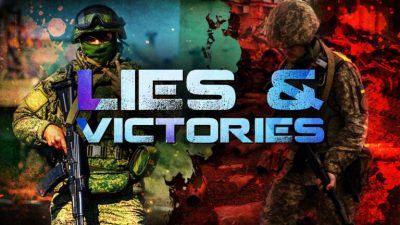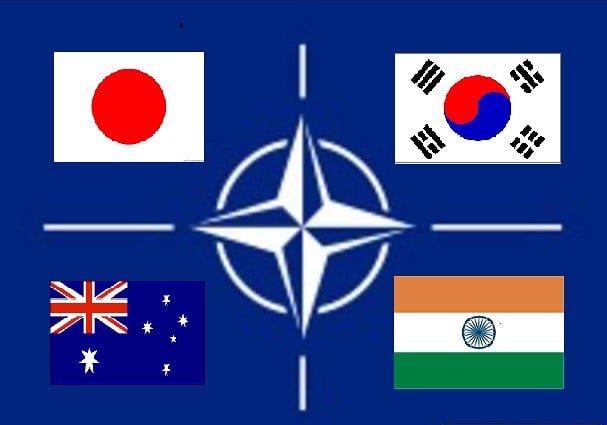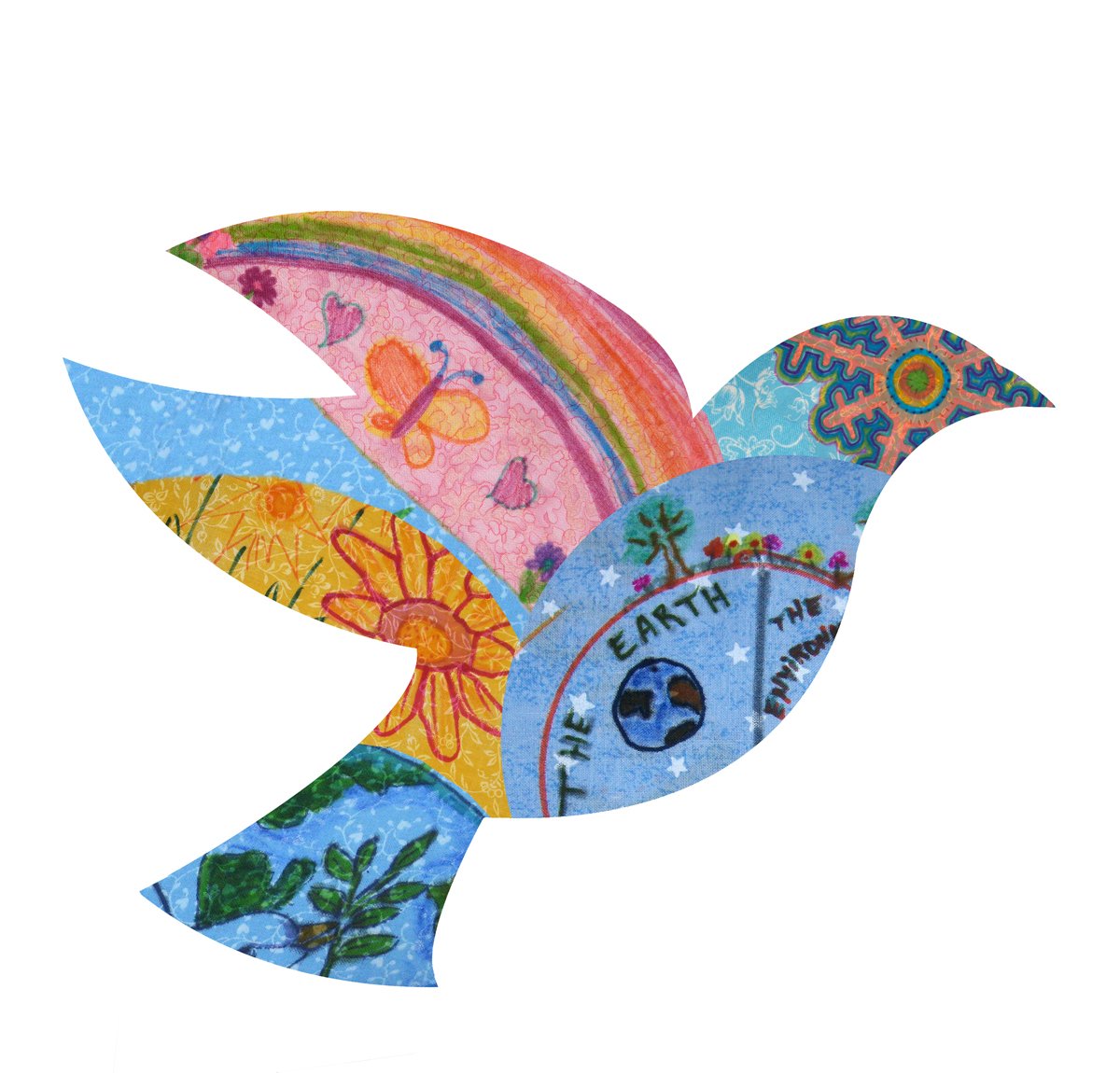War in Ukraine: Who are the Winners and Losers?

All Global Research articles can be read in 51 languages by activating the “Translate Website” drop down menu on the top banner of our home page (Desktop version).
To receive Global Research’s Daily Newsletter (selected articles), click here.
Follow us on Instagram and Twitter and subscribe to our Telegram Channel. Feel free to repost and share widely Global Research articles.
***
The invasion of Ukraine has been going on for more than five months now, and hostilities may continue for quite some time. In military terms, the outcome is still uncertain, but what is already clear is who the big winners and losers of this conflict are. An overview.
The winners
 For the arms manufacturers, this war is like a gift from heaven.
For the arms manufacturers, this war is like a gift from heaven.
At the behest of NATO, European countries will increase their armament efforts by hundreds of billions in the coming years. In Central Europe we may expect a new arms race, just think of the threat to deploy nuclear weapons in Belarus.
In the Arctic region, the same thing threatens to happen with the entry of Finland and Sweden into the Atlantic Alliance.
 The push for a so-called “Global NATO” may also lead to a dangerous and new arms race in Asia.
The push for a so-called “Global NATO” may also lead to a dangerous and new arms race in Asia.
This militarization and new threats of war make the shares of defence companies in the U.S. skyrocket.
The same goes for the big fossil fuel companies. The spectacular rise in gas and petroleum prices has increased their profits by 350 percent.
The third big winner is NATO.
After the fall of the Soviet Union, the alliance’s raison d’être ceased to exist and under Trump the alliance was even declared brain dead. Today the military alliance is alive and well.
In Europe, two members are added and operational combat troops are increased from 40,000 to 300,000 troops. In Asia, as well as other continents, expansion is in the works, either through new partnerships[i] or by increasing existing military presence[ii].
Over the past quarter century, NATO has waged wars against Yugoslavia, Afghanistan, Iraq, Libya and Syria, resulting in nearly one million deaths[iii]. With a vibrant and expanded alliance, there will be many more military adventures.
 Unmistakably the fourth winner is the US. Twenty-five years ago, Zbigniew Brzezinski, top advisor to several US presidents, wrote that for the US, control of the Eurasian continent was essential to maintaining hegemony[iv]. Close cooperation between Europe, Russia and China was to be avoided at all costs.
Unmistakably the fourth winner is the US. Twenty-five years ago, Zbigniew Brzezinski, top advisor to several US presidents, wrote that for the US, control of the Eurasian continent was essential to maintaining hegemony[iv]. Close cooperation between Europe, Russia and China was to be avoided at all costs.
In his words:
“The three grand imperatives of imperial geostrategy are to prevent collusion and maintain security dependence among the vassals, to keep tributaries pliant and protected, and to keep the barbarians from coming together.”
Over the past decade, stronger economic relations between Europe, China and Russia have been growing. This war is reversing that trend. For example, Europe’s dependence on Russian gas is quickly being decreased, mainly in favour of gas from the US. The sanctions cut almost all other economic ties between Russia and Europe.
But with this war, China is also being targeted. Mike Pompeo, former director of the CIA and Secretary of State under Trump said it plainly:
“We must prevent the formation of a Pan-Eurasian colossus incorporating Russia, but led by China,” Pompeo implored.
“To do that, we have to strengthen NATO, and we see that nothing hinders Finland and Sweden’s entry into that organization”.
It is in this context that the recent speech by Liz Truss, Foreign Secretary of the United Kingdom, should be understood. She calls for an “economic NATO.” Such an economic bloc would largely cut off China and Russia from Western economies. This would make the integration of the Eurasian continent impossible, allowing the U.S. to continue exercising its hegemony.
The losers
First and foremost, the entire Ukrainian population has been severely affected by this invasion: thousands of dead and wounded civilians, tens of thousands of dead and wounded soldiers, as well as millions of fleeing citizens. Much of the country’s infrastructure has been destroyed, the harvest has been more than halved, and the country is heading for complete bankruptcy.
Due to martial law, democratic rights have been severely affected. Eleven political parties were banned and according to the UN
“journalists have been targeted, tortured, kidnapped, attacked and killed, or refused safe passage”.
Workers are suffering: zero hour contracts are being legalized and 70 percent of the labour force is exempt from workplace protections.
The Russian population suffers severely too. Tens of thousands of Russian soldiers have lost their lives and a multitude have been wounded. The Russian people are suffering from Western sanctions and increased repression at home.
This war has already cost tens of thousands of lives in Ukraine, but this conflict can also destroy millions of lives far from the battlefield. Indeed, the war is particularly damaging to the global food system already seriously weakened by covid-19, climate change, and high energy prices.
Fortunately, an agreement has been reached to restart grain exports from Ukrainian ports. But that does not prevent food prices from rising[v] sharply in the meantime and therefore becoming unaffordable for an increasing number of people. According to the World Food Programme (WFP), a total of 50 million people in 45 countries are on the brink of famine and, according to the UN, this conflict could cause serious malnourishment to an additional 13 million people this year.
Another major loser is Europe and its population. According to Willy Claes, former Secretary General of NATO, this is essentially a war between the U.S. and Russia, where Europe is side-lined.[vi] Although the war is being waged on the European continent, it is not the European Union but US-controlled NATO that is setting the tone. The Europeans stand by and watch.
But it’s even worse, with the sanctions against Russia, Europe is simply shooting itself in the foot. Significant gas shortages are looming before winter. Not only will that cause a lot of misery, it also increases the likelihood of an economic recession.
It’s not just scarcity that is the problem. Gas prices have increased almost tenfold over last year. Along with skyrocketing inflation, this is also impoverishing large segments of the population. And meanwhile, Russia is seeing its treasury fill up and its rouble strengthen due to phenomenal gas prices.
Among a large proportion of non-Western countries, Europe has lost a lot of prestige because of this war. Those countries cannot understand how the Union is almost completely surrendering its sovereignty and dancing to the tones and war-mongering of the U.S. and Britain.
Another major loser is world stability. After the fall of the Soviet Union, we were temporarily stuck with a unipolar world, completely dominated by the US. With the rise of China and other emerging countries, we seemed to be moving toward a multipolar world.
That was a positive evolution, but spurred on by this war and the warmongering around it, it seems that we are now heading for a division of the world into two camps: a bloc dominated by the West against the rest of the world[vii]. It is highly questionable whether this will succeed, since only a quarter of the countries worldwide have been found willing to support sanctions against Russia.[viii] But it is a negative evolution to say the least.
Another victim of this armed conflict is the planet. In an armed conflict, the ecological damage is always enormous. With this war it is no different. Due to the heavy shelling, there will be significant effects on the urban and rural environment. As a result, Ukraine and the region around it may be burdened with a toxic legacy for generations to come, as shown by a preliminary study by the United Nations Environment Programme (UNEP) and partner organizations.
But this war also jeopardizes urgent action against global warming. One could have taken advantage of this conflict to accelerate the great energy transition. Nothing will come of this, quite on the contrary. New gas-fired power stations are being built and coal-fired power stations are even being restarted.[ix] Instead of achieving a reduction in CO2 emissions, we are unfortunately setting another record in carbon emissions.
The first casualty in any war is the truth. Never was this more visible than in this conflict. The mainstream media put forward NATO’s vision with near unanimity. Dissenting voices uttered by the peace movement or some academics were barely heard. As usual, the exceptions confirm the rule.
The way the mainstream media have bent over backwards to toe the line demanded by NATO and the US in recent months have at times been painful. Before the war, Ukraine was portrayed as “the most corrupt country” in Europe. Today, the country is the epitome of liberal ideals. Before the conflict, there was a problem with neo-Nazis. Afterwards, those groups were portrayed as heroes. And so on.
In peacetime, the mainstream media sometimes blunder. In wartime, they completely mess things up. It just goes to show why alternative media are so important.
Broad front needed
 The longer the war drags on, the greater the losses for the Ukrainians, the Russians, the starving people in the South and the working people at home.
The longer the war drags on, the greater the losses for the Ukrainians, the Russians, the starving people in the South and the working people at home.
The more damaging also for the planet, world peace and reliable journalism.
A broad front is urgently needed between the peace movement, the third world, labour and environmental movements to stop this war madness.
*
Note to readers: Please click the share buttons above or below. Follow us on Instagram and Twitter and subscribe to our Telegram Channel. Feel free to repost and share widely Global Research articles.
Translated by Dirk Nimmegeers
Marc Vandepitte is a regular contributor to Global Research.
Notes
[i] This is mainly the case in Asia with the so-called Quad (partnership between Australia, India, Japan and the US), AUKUS (security pact between Australia, the United Kingdom and the US) and the so-called ‘Five Eyes’ (cooperation based on intelligence between New Zealand, Australia, Canada, United Kingdom and USA.)
[ii] For example, there is talk of a new US military base in Zambia. Outside the European borders, NATO partners are: Colombia, Australia, Iraq, Japan, South Korea, New Zealand, Mongolia and Pakistan.
[iii] In Syria, NATO provided logistical support to extremist Muslim fighters with the aim of ousting President Assad from power. Today NATO is supporting Turkey which is occupying part of that country.
[iv] Brzezinski Z., The Grand Chessboard: American Primacy and Its Geostrategic Imperatives, New York 1997, p. 40.
[v] Compared to a year ago, the price of grain has increased by 27.6 percent. The average food price rose by 23.1 percent. Source FAO (UN).
[vi] Willy Claes in De Afspraak, on Belgian TV, 24 May: “If I may put it a little boldly, it is about a confrontation now between Russia and America. With all due respect and sympathy for the Ukrainians, and by the way, Europe is not playing along”.
[vii] The G7 is trying to develop a competitor to the Belt and Road Initiative (BRI), the New Silk Roads. As Putin travels through Africa, Macron is also rushing to the continent to secure or expand the Western sphere of influence. In Latin America, Biden is trying to counter the influence of China with his Build Back Better World initiative (B3W). And so on.
[viii] According to the Economist’s Intelligence Unit, two-thirds of the world’s population lives in neutral or pro-Russian countries regarding the war in Ukraine.
[ix] Germany, Austria and the Netherlands are restarting coal-fired power stations that have been shut down or are easing production restrictions.
Featured image is from South Front

